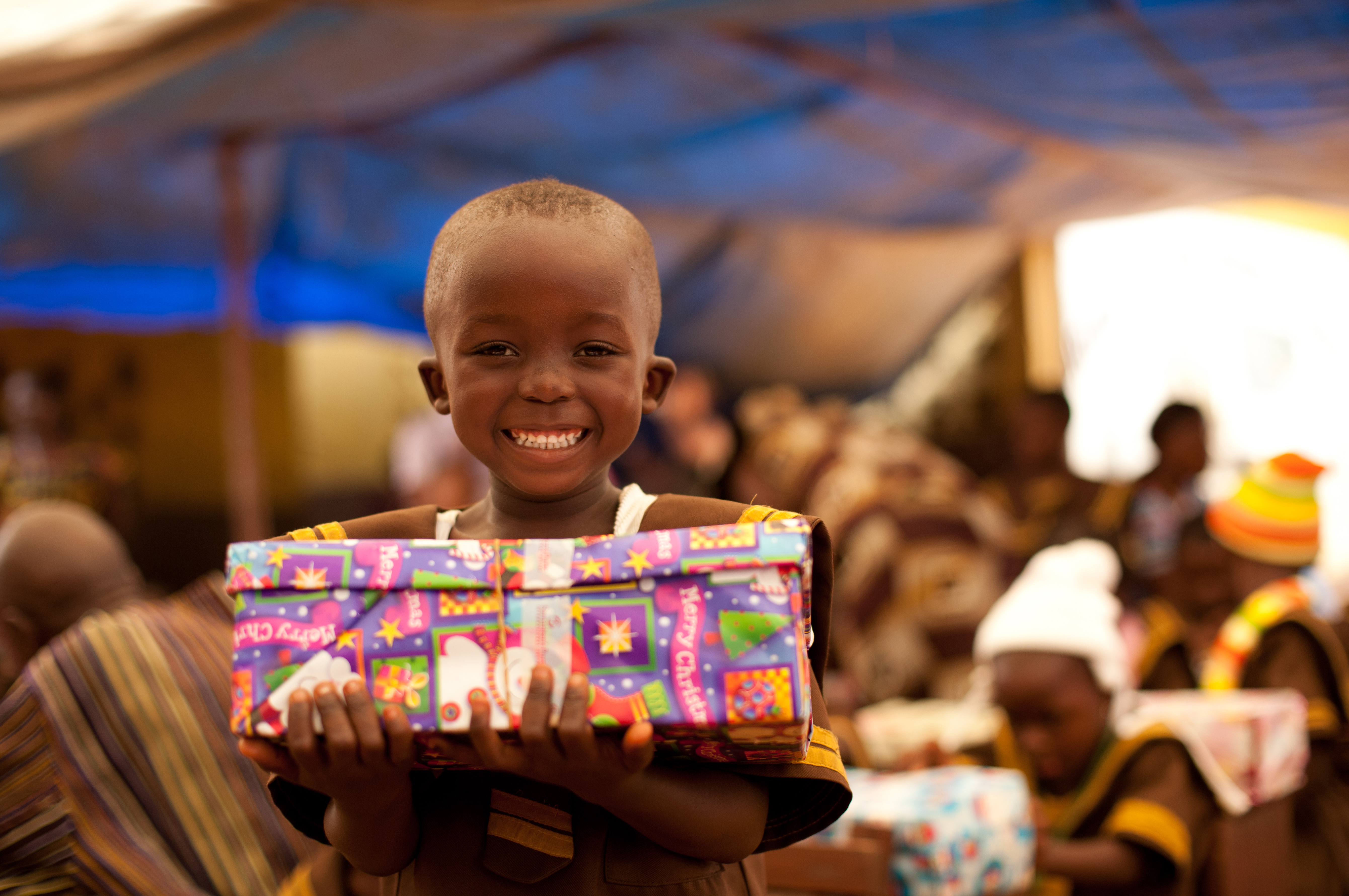Have you ever felt overwhelmed by the sheer amount of presents your kids get at Christmas? We’ve watched in horror before as our kids ripped the paper off a present, barely looking at the gift inside before demanding the next one… aghhh! Maybe you have felt strangely compelled to get them every single thing on their wish-list even though you know it’s not going to make them truly happy? Yep, me too and it’s something I consciously have to control in myself (and those around us) so that things don’t get wild and crazy every Christmas.

PHOTO CREDIT ANDREW NEEL UNSPLASH
There’s a fair bit of complexity to negotiate when it comes to Christmas gifting. As a parent you want nothing more than to grant every one of your child’s wishes so that they have that ecstatic joy on Christmas morning… but we are also aware that spoilt kids are no fun to live with, that too many toys make kids play less, and that a consumer driven life damages not only the environment but our spiritual condition too. Even if we have the gifting somewhat under control, then along come the grandparents, aunties and uncles and friends and “things” can literally pile up very quickly.
I took this issue to the Month of Sundays collective recently to pick their brains on how they have managed Christmas gifts, to see what helpful tips I could gather for our community. Here are some themes and ideas that came up, I pray you find them helpful.
Having an outward focus
Several families mentioned being very intentional about giving to others at Christmas time. Mum of three, Dael, writes “we have always loved giving to another family (secretly) at Christmas and making sure the kids were involved. The way that looks has changed over the years as the kids have grown older.” She shared with me how she asked her daughter to pray about who to give to one year, and she came up with the name of a child they hadn’t seen in years. They tracked them down and anonymously blessed them with an amazing gift. I love this style of blessing others secretly where there is no open reward for the giver!
Several families have gotten their kids involved in putting together Operation Christmas Child shoeboxes, which get distributed to kids in need in overseas countries. The idea of shopping for a child who would otherwise get no presents at all can be a sobering and heartwarming experience for even young kids.

Serving in practical ways
The idea of serving others, even on Christmas Day, was also a common theme. Presents are still given, but the hands-on act of serving draws attention away from what’s under the tree and onto others in the community. Mum of three “G” wrote that their family has volunteered together at their church’s community Christmas lunch several years in a row, and that this “helps the kids to keep their focus on the reason for the season”. As a teen and young adult, my family also did this and it was truly a memorable and surprisingly refreshing day as you focused on others instead of yourself. My little brother does have flashbacks of having to help an elderly man with a toileting accident, but hopefully that was a rare occurrence…
You could take donations to a local food bank and help them pack hampers… you could volunteer for a Christmas choir or production at church… you could contact a local charity and go onsite for a day as a family to help with whatever jobs are needing to be done. Over the years you might develop a lovely tradition that your kids will look back on fondly like I do.
Setting a limit
Some families find it helpful to set a limit or a budget on the number of presents given. Mum of three, Jess, writes “we stick with a limit of presents per child (usually something significant that they really want, with a few bits and bobs added from us), and they also don’t get a present from everybody they know. We do family ‘Kris Kringle’ with extended family so that each person gives and receives one good gift, including the kids.”
Another way to take the focus off presents at Christmas is to make birthday gifts more extravagant… Mum “G” wrote “in general we make a big deal of their birthdays and try and play down presents at Christmas time, although it doesn’t always work”.
You might like the practicality of the four present rule, you can read about it here. It sets a limit for each child of four presents (something you want, something you need, something to wear and something to read). It’s a great way to not let gifting get out of control! And you can be really thoughtful and creative with each category to make sure the kids still get a buzz from each gift.
Gratitude
Many families deliberately cultivate thankfulness at Christmas time. Mum of two, Liv wrote “we try and remind our family that we have enough and that what they do receive they should be grateful for.” Mum of three, Kathleen, mentions that writing thank you cards can help with developing gratitude. We have found with our own kids that as we have involved them with our Operation Christmas Child boxes and they considered children in need they became more aware of how blessed they are and grateful for what they have and will receive.
3 rules for less present obsessing
Christian Parenting Coach Belinda Letchford posts some great practical and spiritual advice on her Instagram page, which you can see here. Recently she shared three really useful tips to stop kids obsessing over presents and what they’re going to “get” at Christmas. One of the ones that challenged me was to not get your kids to write a Santa list… we’re a bit too late on that for our house but I can see now that would have been a wiser move and I’m hoping it might help one of you reading today who have small kids still.
Being involved in the choosing
Something we have done the last few years as our kids have moved beyond toddler years is to take each child on a shopping date in the weeks before Christmas, to buy their sibling a present. It’s great for a few reasons, the first being that alone time with a parent can be such a powerful gift itself, especially if you can carve out the time to be relaxed and attentive to them for the occasion. The second big reason is that choosing gifts for others forces the giver to think beyond themselves and put themselves into the shoes of the recipient. How many times have you received (or given!) a gift that you know the giver chose because they liked it, not because you would like it! For little ones this takes practice, but I’ve loved seeing some light bulb moments in them recently where they get that little shiver of anticipation knowing they’ve chosen something their sibling will really love.
We usually sit and enjoy a snack or drink to round out the date, and it’s a great chance to have some reflective conversations about their year coming to an end. Over time we’re going to develop this into them using their own pocket money to buy the gift for their sibling and maybe a best friend or even us parents! Not only will that teach them that presents cost money, but even more importantly that giving involves sacrifice. To give is to sacrifice something that’s of value – sometimes that’s money, sometimes time and effort, or in the case of God our Father, the price was His own son Jesus who he sent to the earth the first Christmas. And that's ultimately where we want the attention to go at Christmas time - to the giver of the best ever gift.
Do you have a great tip on how to handle gifting that you've found really helpful? I'd love to hear about it! Send me an email here.
God bless you and your family this Christmas time! We can't wait to grow with you in our Christian parenting journey next year and beyond - thanks for reading and being part of the Month of Sundays community.
Chelsea.

